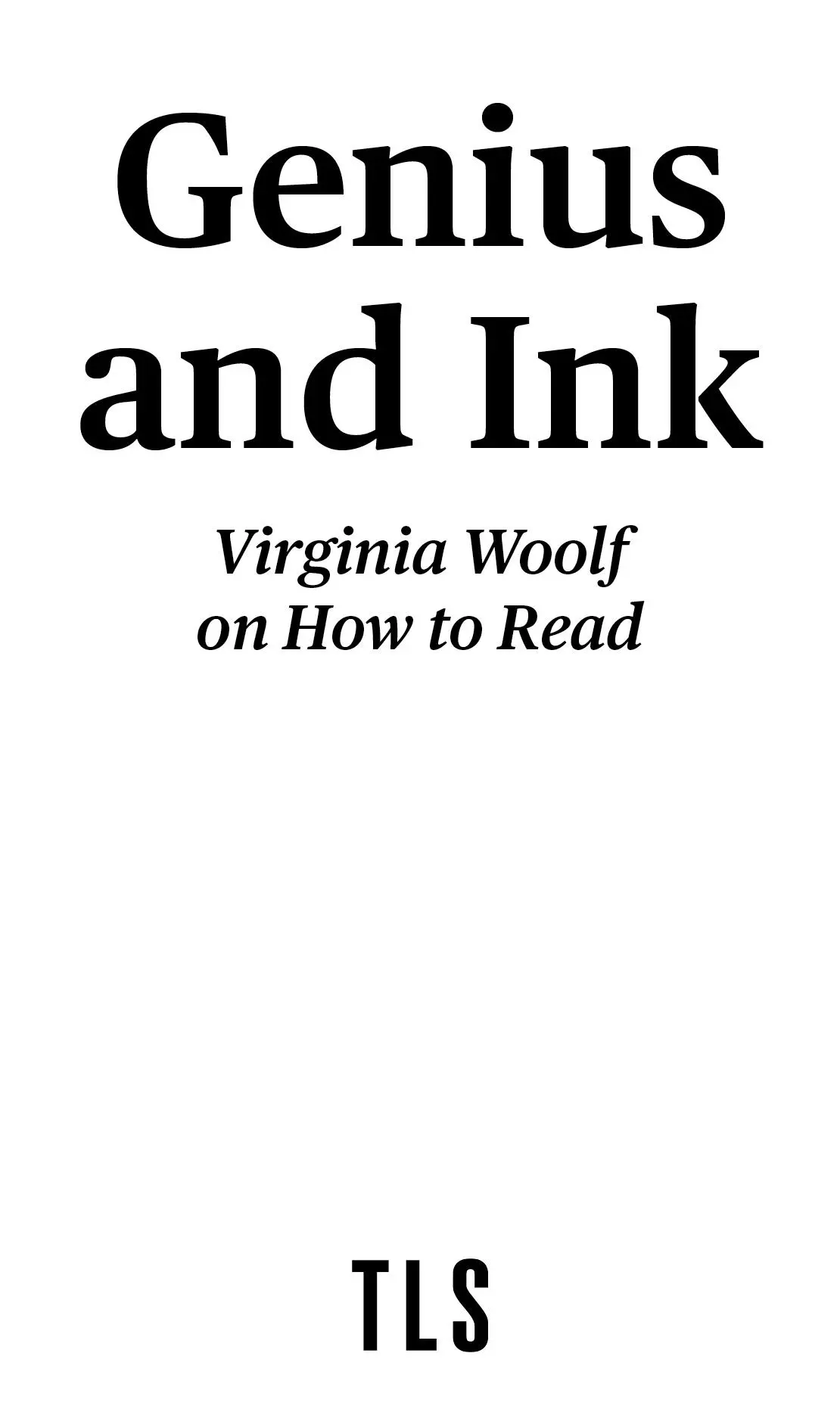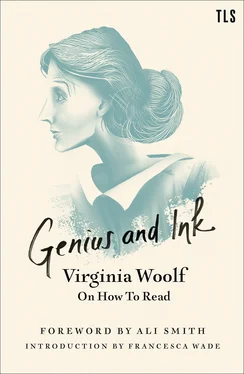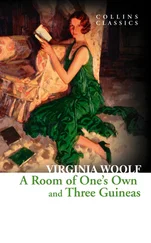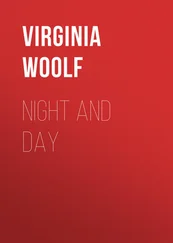The Times Literary Supplement was born in January 1902. Its first ever front page bashfully stated that ‘during the Parliamentary session Literary Supplements to “The Times” will appear as often as may be necessary in order to keep abreast with the more important publications of the day’. Fortunately, the question of necessity was not left in the hands of literary journalists (who, we can imagine, might occasionally push for a holiday or two), and the title became a weekly one. A few years later, the TLS split entirely from The Times .
Since then, we have prided ourselves on being the world’s leading magazine for culture and ideas. Our guiding principle for the selection of pieces remains the same as it ever has been: is it interesting; and is it beautifully written? Over the years, our contributors have included the very best writers and thinkers in the world: from Virginia Woolf to Seamus Heaney, Sylvia Plath to Susan Sontag, Milan Kundera to Christopher Hitchens, Patricia Highsmith to Martin Scorsese.
The book you are holding is part of a brand-new imprint, TLS Books , by which we are striving to bring more beautiful writing to a wider public. We hope you enjoy it. If you want to read more from us, you’ll find a special trial subscription offer to the TLS at the back of this book.
In an ever-quickening culture of flipness and facility, fake news and Facebook, the TLS is determined to be part of the counter-culture of quality. We believe in expertise, breadth and depth. We believe in the importance of ideas, and the transformative power of art. And we believe that, in reading the TLS – in whatever form, be it in a magazine, online or in a book – you are supporting a set of values that we have been proud to uphold for more than a hundred years. So thank you for that.
Stig Abell, Editor-in-Chief, TLS Books
London, 2019
FICTION
The Voyage Out
Night and Day
Jacob’s Room
Mrs Dalloway
To the Lighthouse
Orlando
The Waves
The Years
Between the Acts
NON-FICTION
The Common Reader Vols 1 and 2
A Room of One’s Own
Flush
Three Guineas
Roger Fry

TLS Books
An imprint of HarperCollins Publishers
1 London Bridge Street
London SE1 9GF
The-TLS.co.uk
This eBook first published in Great Britain by TLS Books in 2019
Preface copyright © Ali Smith 2019
Introduction copyright © Francesca Wade 2019
Illustration copyright © Ella Baron 2019
Cover illustration by Ella Baron
A catalogue record for this book is available from the British Library
All rights reserved under International and Pan-American Copyright Conventions. By payment of the required fees, you have been granted the non-exclusive, non-transferable right to access and read the text of this e-book on-screen. No part of this text may be reproduced, transmitted, down-loaded, decompiled, reverse engineered, or stored in or introduced into any information storage and retrieval system, in any form or by any means, whether electronic or mechanical, now known or hereinafter invented, without the express written permission of HarperCollins.
Source ISBN: 9780008361884
Ebook Edition © November 2019 ISBN: 9780008355739
Version: 2020-11-05
Two things I mean to do when the long dark evenings come: to write, on the spur of the moment, as now, lots of little poems to go into P.H. : as they may come in handy: to collect, even bind together, my innumerable T.L.S. notes: to consider them as material for some kind of critical book: quotations? comments? ranging all through English literature as I’ve read it and noted it during the past 20 years.
Virginia Woolf, 1938
1 Cover
2 About the TLS
3 Works by Virginia Woolf
4 Title Page
5 Copyright
6 Epigraph
7 Contents
8 Preface
9 Introduction
10 Frontispiece
11 Charlotte Brontë
12 Hours in a Library
13 George Eliot
14 The Letters of Henry James
15 John Evelyn
16 On Re-reading Novels
17 How it Strikes a Contemporary
18 Montaigne
19 Joseph Conrad
20 Notes on an Elizabethan Play
21 Thomas Hardy’s Novels
22 Fanny Burney’s Half-Sister
23 Aurora Leigh
24 The Captain’s Death Bed
25 A Note on the Text
26 About the Author
27 Enjoyed the book?
28 Also from TLS Books
29 About the Publisher
Landmarks CoverFrontmatterStart of ContentBackmatter
List of Pages i ii iv v vi vii 1 2 3 4 5 6 7 9 10 11 12 13 14 15 16 17 18 19 20 21 25 27 28 29 30 31 32 33 34 35 36 37 38 39 40 41 42 43 44 45 46 47 49 50 51 52 53 54 55 56 57585960616263 65666768697071727374757677787980 8182838485868788899091929394 9596979899100101102103104105106107108109110111112 113114115116117118119120121122123124125 127128129130131132133134135136137138139140141 143144145146147148149150151152153 155156157158159160161162163164165166167168 169170171172173174175176177178179180181182183184185186187 189190191192193194195196197198199200201202203204205206 207208209210211212213214215216217218219220221222223 225226227228229230231232233234235236237 239240 243245
By Ali Smith
Genius and ink : the phrase that gives this book its title has been notched out of ‘On Re-reading Novels’, one of the essays by Virginia Woolf written over two decades as a reviewer and critic for the Times Literary Supplement . Ostensibly a consideration of Percy Lubbock’s 1921 publication The Craft of Fiction , the real focus of ‘On Re-reading Novels’ is the beginnings of the critical attempt towards a fuller understanding of the novel as form. Woolf wrote it at a time when ideas about the shape of the novel were about to defy all former imaginings. James Joyce’s Ulysses had been serialized and passed around in bits and pieces for the preceding four years and was finally published in its entirety in early 1922; and Woolf’s own transformatory work had begun with her first truly great experimental novel Jacob’s Room , which she published three months after this essay appeared. You might say the whole notion of what a novel could be was being re-read.
So what makes a novel a novel, then? ‘Obviously there must be a process, and it is at work always and in every novel’, she writes in July 1922. ‘We must have been aware that a novelist, before he can persuade us that his world is real and his people alive, must solve certain questions and acquire certain skill. But until Mr. Lubbock pierced through the flesh and made us look at the skeleton we were almost ready to believe that nothing was needed but genius and ink.’ Thank you, Mr. L, she says, for the helpful attention paid to the concept of process, meanwhile she quietly infers that his splaying-open of the form is also a kind of killing.
When it comes to literary form and its relation to concepts of reality, or concepts of literary/literal aliveness in the form of the novel, Woolf would ask something a lot more vital from critical response. This collection lets its readers trace the formation of her own critical voice, through her responses to a range of classic (and not so classic) writers and literary forms. It charts a timeline of pieces via which her open, wry and intuitive reading of a work or a writer shifts in potency from an early brilliance that’s conscious of (and still a bit beholden to) deference to tradition, to the finding of a formidable vital intelligence of voice and critical form, one which would revolutionize the possibilities of critical writing.
Читать дальше













